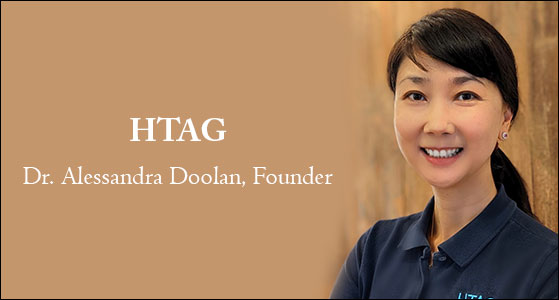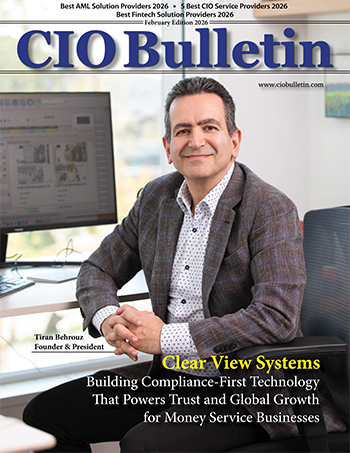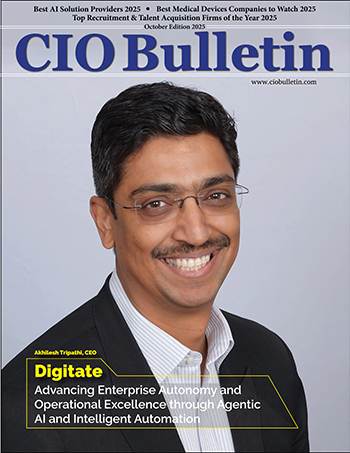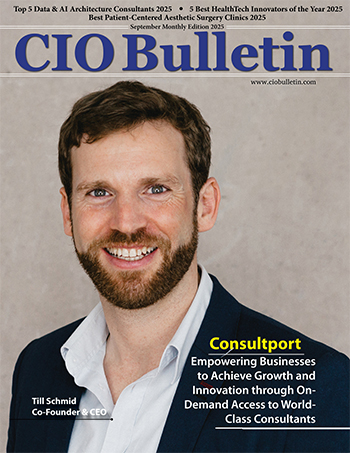50 Fastest Growing Companies 2022
CIO Bulletin

Health — is a fundamental human right, and demands regular and effective governmental investment in public policies and actions. People’s health is strongly and directly influenced by policies that guide and regulate social, political, and cultural forces and society’s behavior. Hence, to improve the health of communities’ public health thinkers, innovators, and practitioners must commit to advocating for policy changes that support the development of health-enhancing environments.
A policy is not an intervention; rather, it is the key driving force impelling the intervention and ensuring its implementation. In other words, a policy is — or should be — a solid bridge connecting evidence and knowledge with intervention and practice.
Evidence-based policy action has improved the health of populations for decades, as exemplified by the introduction of child vaccination, and improved interventions to control risk factors leading to stroke and heart disease. There have been many other successes in the past as well. However, despite billions being spent on research and service delivery globally, the use of evidence-based information is still not optimal.
Accelerating the inclusion of better public policies in health needs a prime consideration to increase the value of public investments and help ensure that policies designed to improve health have their desired effects. Linking evidence into policy recommendations augments their lucidity, transparency, and reliability.
According to the World Health Organization (WHO), over 1 billion people are estimated to experience disability. This corresponds to about 15% of the world’s population, with nearly 190 million (3.8%) people aged 15 years and older have significant difficulties in functioning, often requiring health care services.
Despite progress in science, technology, and advocacy, disabilities of all kinds are still equated, incorrectly and by too many people, with ill health, dependence, and incapacity. Today, some believe that mobility difficulties are a weakness or personality defect to be overcome. Age-old perceptions, fears, and misunderstandings, while still prevalent, are far from the reality of disability today.
The number of people experiencing disability is increasing due to a rise in chronic health conditions and an aging population. Disability is a human rights issue, with people with disability being subject to multiple violations of their rights, including acts of violence, abuse, prejudice, and disrespect because of their disability, which intersects with other forms of discrimination based on age and gender, among other factors.
Disability is a development priority because of its higher prevalence in lower-income countries and because disability and poverty reinforce and perpetuate one another.
For millions of people suffering from disabilities in Australia, HTAG (The Health and Technology Advisory Group) provides evidence-based advocacy and policy support in healthcare for government discussions, healthcare policy recommendations, and program implementations. It is a National Disability Insurance Scheme (NDIS) registered provider specializing in capacity building supports, customizable plan and care programs, and assistive technology.
In conversation with Dr. Alessandra Doolan, CEO of HTAG
Q. Why was HTAG set up? What are the goals and purposes of the company?
HTAG was founded in 2016 in Sydney Australia - to provide evidence-based advocacy and policy support in healthcare for government discussions, healthcare policy recommendations, and program implementations. HTAG received its National Registration as a NDIS registered provider specializing in capacity building supports, customizable plan and care programs, and assistive technology including digital training and supports.
Q. What gap in the market is HTAG envisioned to fill?
The delivery of primary healthcare and community support in Australia is challenging, thus HTAG strives to support community members and young people with disabilities as much as possible through innovative and sustainable capacity building programs and supports that are wholistic, customizable and person-centered to improving healthcare access and quality of life.
Q. How does HTAG engage, enable, and empower its community?
In early 2018, HTAG proposed an initiative based on the social enterprise model to apply commercial strategies to maximize improvements in the economic, social, and environmental well-being of those in the community living with a disability. As a part of this program, HTAG’s Innovative Community Participation Program was developed. Together with the Australian Government and community partners, the program aims to provide support for the mental health and well-being of the Australian community living with disability through social and community participation.
Can you talk briefly about HTAG’s various programs?
ENGAGE
The HTAG ENGAGETM program focuses on a capacity-building program supporting school students in social and recreational group learning environments.
ENABLE
The HTAG ENABLETM program focuses on assistance in coordinating transition life stages, further learning, vocational training, and daily life skills.
COMMUNITY
The HTAG COMMUNITYTM program is an access program empowering participants in social, communication, independent and life skills.
Q. What are HTAG’s plans for the future?
It was particularly difficult during the pandemic for Australians in vulnerable communities such as indigenous people, people with chronic diseases and disabilities, elderly/aged care, people living in remote and rural regions, and especially those needing mental health support. These challenges further highlighted the need for improved care models and programs in the primary and community care settings.
Therefore, the team at HTAG and I are focused on continuing to help as many members of the community as possible with their services. I am also focused on exciting projects in digital healthcare, assistive technology, and innovative community services and healthcare models.
Helping foster a community spirit in the well-being of people living with disabilities
Dr. Alessandra Doolan is the Founder of HTAG. She founded HTAG in 2016 and brings over 25 years of healthcare experience in public and private healthcare sectors including community care, primary healthcare, and hospital quality management systems (QMS). She is an independent healthcare consultant who specializes in Health Economics, Advocacy, and Policy, with a Ph.D. in Research Medicine along with a Master of Public Health from the University of Sydney, majoring in Health Economics and Policy Research.
Her ultimate passion is in improving equitable healthcare access, particularly in primary care and community settings. She also has extensive involvement in various government consultations and working groups including reviews of the MBS (Medicare Benefits Schedule), primary healthcare, chronic disease management, and digital health.

Insurance and capital markets







